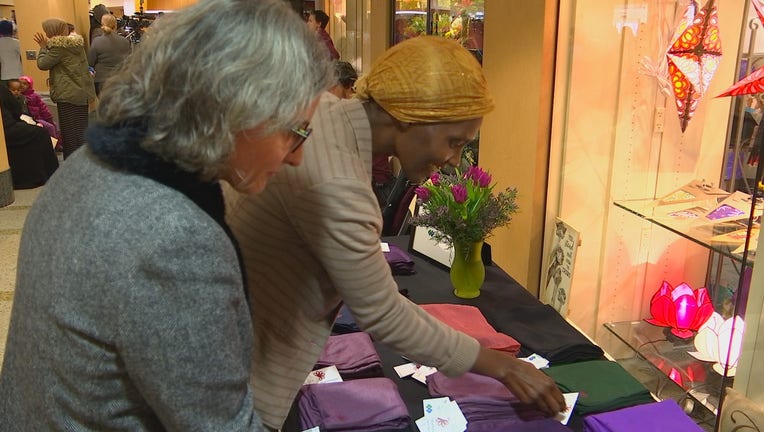St. Louis Park hospital makes history by selling Minnesota made hijabs

A 24-year-old Minnesotan's business is now selling Minnesota-made hijabs at a St. Louis Park Hospital.
ST. LOUIS PARK, Minn. (FOX 9) - Thursday, a local hospital became the first health care system in the country to sell a line of hijabs.
The collaboration began with one Minnesotan’s dream to make a difference.

St. Louis Park hospital makes history by selling Minnesota made hijabs
Thursday, a local hospital became the first health care system in the country to sell a line of hijabs.
“What I really wanted to create was something unique and of high quality,” said Hilal Ibrahim, CEO of Henna and Hijabs.
Ibrahim, of Minnetonka, launched Henna and Hijabs in 2017. It’s a locally-owned company that creates handmade headscarves typically worn by Muslim women.
“We source the material and then stitch everything in house in Minneapolis,” Ibrahim said. “So, all of our tags say, ‘Made in Minneapolis with love.’”
After two years in business, 24-year-old Ibrahim reached a major milestone recently.
“I’m excited and honored to announce the first ever collaboration and launch of hijabs into a healthcare system in the United States,” Ibrahim said.
Methodist Hospital, in St. Louis Park, is now selling the hijabs.
“Here at Park Nicollet, inclusion lives here and I couldn’t be more proud to say that, especially today,” said Jennifer Myster, president of Methodist Hospital.
The HealthPartners collection of headscarves come in two materials and a variety of colors. As a longtime volunteer and phlebotomist at Methodist, Ibrahim says she sees a need.
“I know when I volunteered I’d see a lot of women wearing white hospital blankets on their head just because there was nothing else available,” said Ibrahim.
She hopes to offer a sense of belonging for patients, visitors and staff who value modesty.
“And to think I’d be standing here 10 years later, right outside this gift shop, I actually started volunteering in, now designing hijabs to go into the healthcare system is just amazing and I’m so honored,” she said. “Thank you all.”
Ibrahim’s hijabs can be found in the gift shop. Proceeds from the sales will go toward grants and scholarships. HealthPartners is hopeful that other health systems will follow in their footsteps.

